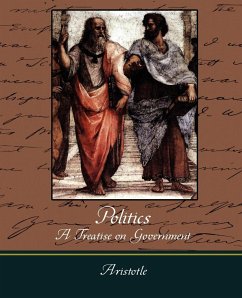
William of Sherwood's Treatise on Syncategorematic Words
Versandkostenfrei!
Versandfertig in 1-2 Wochen
44,99 €
inkl. MwSt.

PAYBACK Punkte
22 °P sammeln!
William of Sherwood's Treatise on Syncategorematic Words was first published in 1968. Minnesota Archive Editions uses digital technology to make long-unavailable books once again accessible, and are published unaltered from the original University of Minnesota Press editions. This is the first translation of an important medieval work in philosophy, an advanced treatise by the thirteenth-century English logician William of Sherwood. The treatise draws on doctrines developed in Sherwood's Introduction to Logic,which has also been translated by Professor Kretzmann. William of Sherwood is an impo...
William of Sherwood's Treatise on Syncategorematic Words was first published in 1968. Minnesota Archive Editions uses digital technology to make long-unavailable books once again accessible, and are published unaltered from the original University of Minnesota Press editions. This is the first translation of an important medieval work in philosophy, an advanced treatise by the thirteenth-century English logician William of Sherwood. The treatise draws on doctrines developed in Sherwood's Introduction to Logic,which has also been translated by Professor Kretzmann. William of Sherwood is an important figure in the development of the logica moderna,the distinctively medieval contribution to logic and semantics. As Professor Kretzmann explains, the logica moderna may have originally aimed only ad providing ad hoc rules regarding inferences that involve problematic locutions of ordinary discourse. But its principal aim soon became the development of a more or less general account of the ways in which words are used to stand for things or to affect the meanings of other words. In Sherwood's time the logica moderna seems to have been thought of as having two branches, an account of the "properties of terms" and an account of the signification and function of "syncategorematic words." Sherwood deals with the first branch in his Introduction to Logic and with the second branch in the treatise presented here. The translation is copiously annotated to supply the kind of explanatory material a twentieth-century reader may need for an understanding of a thirteenth-century discussion. As Professor Kretzmann points out, many of the problems dealt with in this treatise closely resemble the problems of twentieth-century philosophical logic and philosophy of language.













